 Petzlover
Petzlover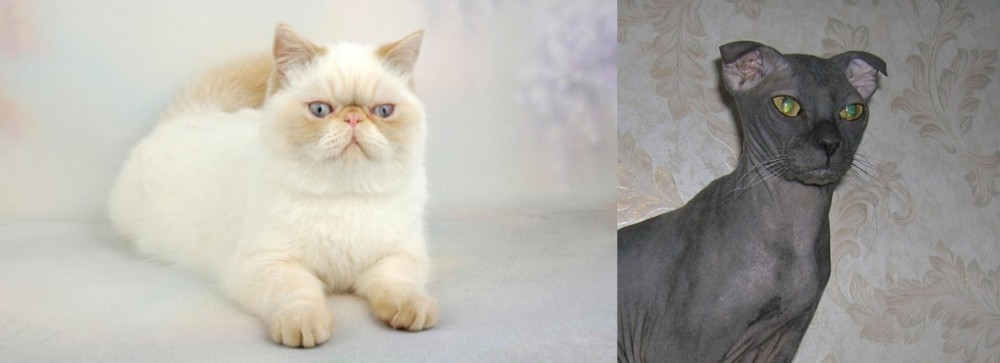 Exotic Shorthair is originated from United States but Ukrainian Levkoy is originated from Ukraine. Both Exotic Shorthair and Ukrainian Levkoy are of same weight. Both Exotic Shorthair and Ukrainian Levkoy has almost same life span. Both Exotic Shorthair and Ukrainian Levkoy has same litter size. Both Exotic Shorthair and Ukrainian Levkoy requires Low Maintenance.
Exotic Shorthair is originated from United States but Ukrainian Levkoy is originated from Ukraine. Both Exotic Shorthair and Ukrainian Levkoy are of same weight. Both Exotic Shorthair and Ukrainian Levkoy has almost same life span. Both Exotic Shorthair and Ukrainian Levkoy has same litter size. Both Exotic Shorthair and Ukrainian Levkoy requires Low Maintenance.
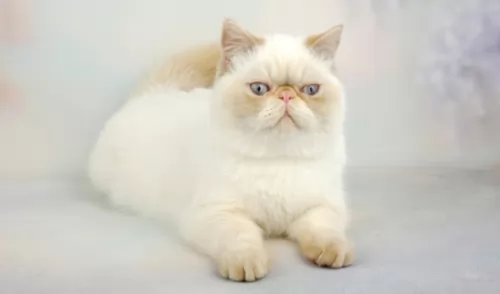 The Exotic Shorthair cat is such a sweet-faced cat that it is often referred to as the ‘lazy man’s Persian. This is because the face is also flat and pushed in like the Persian cat.
The Exotic Shorthair cat is such a sweet-faced cat that it is often referred to as the ‘lazy man’s Persian. This is because the face is also flat and pushed in like the Persian cat.
The Exotic Shorthair was in fact developed as a short-haired version of the Persian. It was in the 1950s that the Persian was used to mate with other breeds such as the Burmese.
The crossbreed gained recognition but some American Shorthair breeders produced a new breed standard that would disqualify American Shorthairs that showed any signs of crossbreeding.
It was in 1966 that the Cat Fanciers Association recognized the cat as a new breed and under the name Exotic Shorthair.
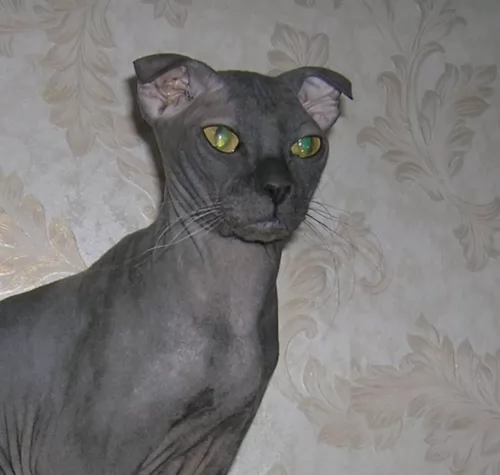 The Ukrainian Levkoy is a distinctive looking cat with its folded ears. This is a new breed of cat, only being developed recently early in the 2000s.
The Ukrainian Levkoy is a distinctive looking cat with its folded ears. This is a new breed of cat, only being developed recently early in the 2000s.
The cat was first developed by Elena Biriukova in Ukraine, by crossing the hairless Donskoy cat with the Scottish Fold. Also, Oriental and domestic cats were also brought into the mix.
This particular cat breed was recognized in 2005 in Ukraine and recognized in Russia in 2010. The cat isn’t recognized by any of the major international cat organizations.
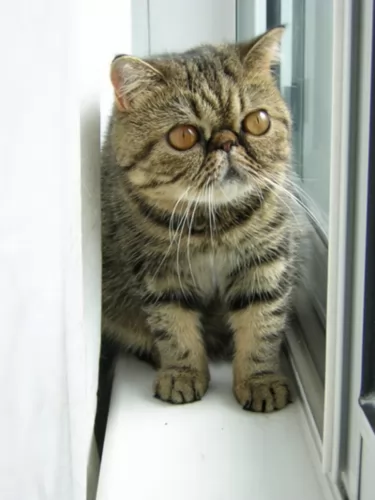 Developed through crosses between Persians and American Shorthairs as well as other cat breeds, the Exotic Shorthair looks like the Persian but he has a short coat.
Developed through crosses between Persians and American Shorthairs as well as other cat breeds, the Exotic Shorthair looks like the Persian but he has a short coat.
The coat is found in the same colors as the Persian cat – patterns and solid colors, ranging from chinchilla silver to tabby, tortoiseshell, black and white and bicolor. The eyes are large and round, the ears small and round and the tail fairly short and thick.
The Exotic Shorthair is a sweet, gentle, calm cat but a bit livelier than the Persian. They’re lively, friendly, and playful, but are also cats that like to sit in your lap and be stroked.
They get on well with children and other pets, being a loyal friend to the entire family. He quietly communicates with his human family with a soft voice. He is also quite adaptable to living conditions so long as his human family provides him with lots of attention.
He won’t want to be left for long periods of time on his own so he won’t suit living in a home where he is left alone all day.
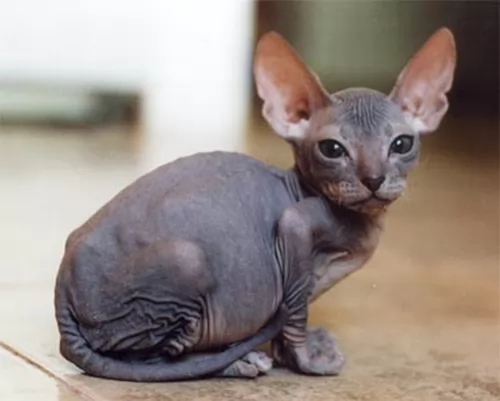 With his distinctive appearance, the medium-sized, muscular but slender Ukrainian Levkoy cat weighs in the region of 3 to 6kg.
With his distinctive appearance, the medium-sized, muscular but slender Ukrainian Levkoy cat weighs in the region of 3 to 6kg.
He has these inward-folding ears with very little hair. These are two distinctive features of this cat. The skin is soft and wrinkled, the eyes large and almond-shaped while the ears are also large and set wide apart and high on the wedge-shaped head.
He has long, slender legs and a narrow tail. The litter size of these cats is generally 3 to 6.
Friendly and playful, the Ukranian Levkoy is also intelligent and enjoys having human companionship.
He is social and will make friends of other pets in the house. He is also compatible with children.
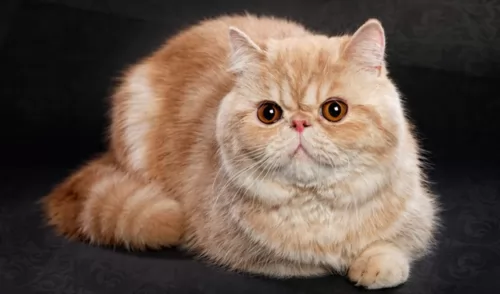 Your Exotic Shorthair is a loving cat and for those who prefer, it is a cat that is livelier than the Persian. While the Exotic Shorthair also has a mellow personality, because of its shorthair ancestors, it's more active.
Your Exotic Shorthair is a loving cat and for those who prefer, it is a cat that is livelier than the Persian. While the Exotic Shorthair also has a mellow personality, because of its shorthair ancestors, it's more active.
This Exotic cat can live to be 15, 16, or 17 if you care for him well and that means you have 15 years to share with a most wonderful feline companion.
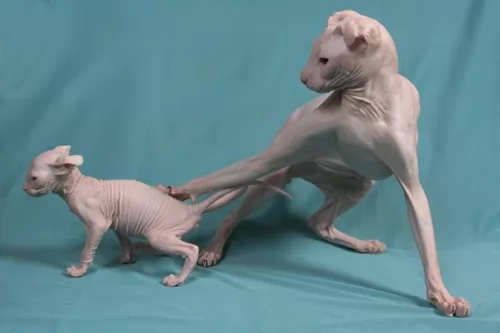 The Ukrainian Levkoy, even though he is fairly docile, is a very sociable cat that thrives on human interaction.
He is able to get on well with children as well as with other pets. He is also quite a vocal cat and will let you know when he is hungry or wants to play. Some call them ugly and others call them sweet - whatever you make of the Ukranian Levkoy, he needs your love and care to be the best pet he can be.
The Ukrainian Levkoy, even though he is fairly docile, is a very sociable cat that thrives on human interaction.
He is able to get on well with children as well as with other pets. He is also quite a vocal cat and will let you know when he is hungry or wants to play. Some call them ugly and others call them sweet - whatever you make of the Ukranian Levkoy, he needs your love and care to be the best pet he can be.
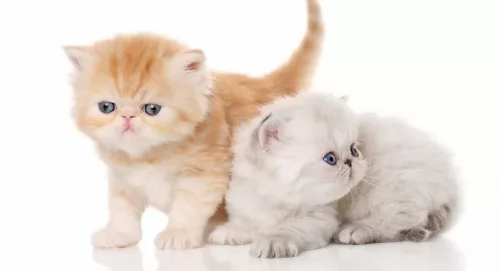 With the Exotic Shorthair, some of the diseases are genetic while others can be encouraged by poor diet and lifestyle.
With the Exotic Shorthair, some of the diseases are genetic while others can be encouraged by poor diet and lifestyle.
Obesity for instance is a major disease of cats and it contributes to many serious illnesses in cats. Excess weight shortens your cat’s life and contributes to arthritis and diabetes. The extra weight puts a strain on the cat's joints. Shedding just a little bit of weight can result in improved mobility.
Dental disease is a common chronic problem in pets. Make sure to check inside your cat’s mouth from time to time as serious dental problems can cause pain and interfere with the health of your cat’s important organs such as heart and kidneys.
All kinds of parasites can invade your Exotic Shorthair's body, internally and externally – worms, fleas, and ticks - and cause your pet a tremendous amount of pain and discomfort.
Brachycephalic Syndrome is a respiratory distress syndrome and it mostly affects what is known as brachycephalic cats – those cat with snub faces like the Exotic Shorthair.
The flattened features of the face make it that there is less space for the tissue to grow. The soft area at the back of the roof of the mouth hangs into the airway, obstructing it, and they can’t breathe normally. Sometimes the cats will require surgery to allow for more regular breathing.
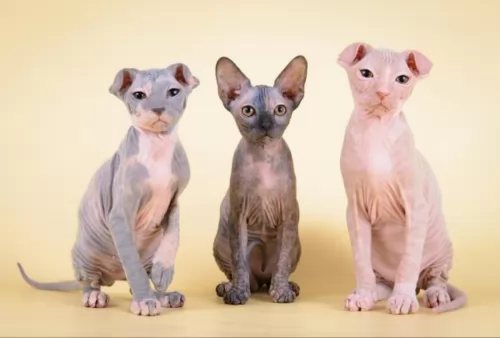 These cats are generally considered to be healthy cats. Having said that, they can be predisposed to the same conditions that the Donskoy and Scottish Fold breeds face.
These cats are generally considered to be healthy cats. Having said that, they can be predisposed to the same conditions that the Donskoy and Scottish Fold breeds face.
It is always beneficial to know and recognize some of the symptoms of a sick cat - lethargy, vomiting, diarrhea, heavy breathing and lack of appetite. Then it's time to schedule a visit to your local vet.
While there aren't any breed-specific health problems associated with the Ukrainian Levkoy, it is imperative to have him vaccinated against the deadly cat diseases that there are.
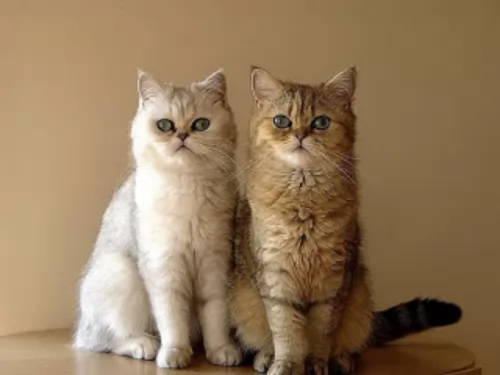 It is important to understand the type of foods available to your pet and how often and how much to feed him.
It is important to understand the type of foods available to your pet and how often and how much to feed him.
Most cats prefer to eat several small meals a day as opposed to a couple of large ones. Make feed times interesting and provide food puzzles to have your cat ‘prey’ for food.
Always read and understand the labels on the cat food packaging and be sure to always feed your Exotic Shorthair with the very best food there is and to follow the portion guides.
If you’re in any doubt or your cat doesn’t want to eat his food, try something else or speak to your vet about how to be sure your cat is getting fed the best food there is.
Make sure to have your kitten vaccinated as required. Also, when you take your kitten in to be vaccinated, the vet will also perform a check-up to make sure your kitten is healthy as these cats are susceptible to bacterial and viral infections.
Your cat has a short, low maintenance coat. A brush once a week can get rid of loose hairs and you and your cat will both enjoy the therapeutic bonding between the two of you.
Check your cat’s inner ears for wax and debris as well as for signs of any infection, and if you don’t want to do that, professional cat groomers can do it for you.
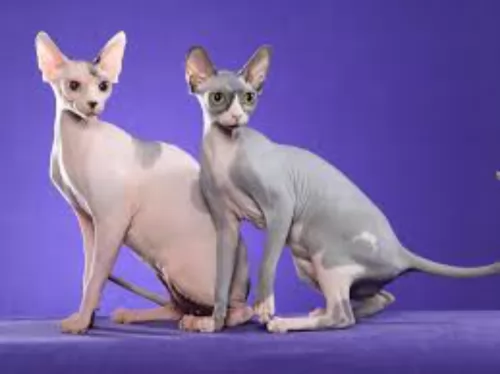 As with all cats, it's important to keep up your Ukrainian Levkoy's regular veterinary checkups. This means you can get to any health concerns early so that your vet can come up with a treatment plan for your pet.
As with all cats, it's important to keep up your Ukrainian Levkoy's regular veterinary checkups. This means you can get to any health concerns early so that your vet can come up with a treatment plan for your pet.
Some cat lovers make a point of scheduling yearly wellness visits with their vet, and this can be a good thing. Cats are natural scratchers so make sure you invest in a scratching post for him.
The inside of the Ukrainian Levkoy's ears should be examined regularly for signs of dirt and wax build-up. It can lead to infection. Speak to your vet about your cat's ears if yourself.
The Ukrainian Levkoy is an active cat and if he is an indoor cat, he will definitely need a climbing tree or some kind of cat perch to leap up onto.
The Ukrainian Levkoy is a hairless cat, so you won't brushing your cat's hair but he will need to have a bath. The skin can become oily and attract dirt. Diet is absolutely important. You'll need to make sure you're feeding your cat a high protein diet as every cat is a carnivore. A cat like this needs to stay in shape to avoid cat diseases related to being overweight.
Most Ukrainian Levkoys need to be kept warm, so you might well have to invest in a jacket or jersey to keep him warm on a cold day.